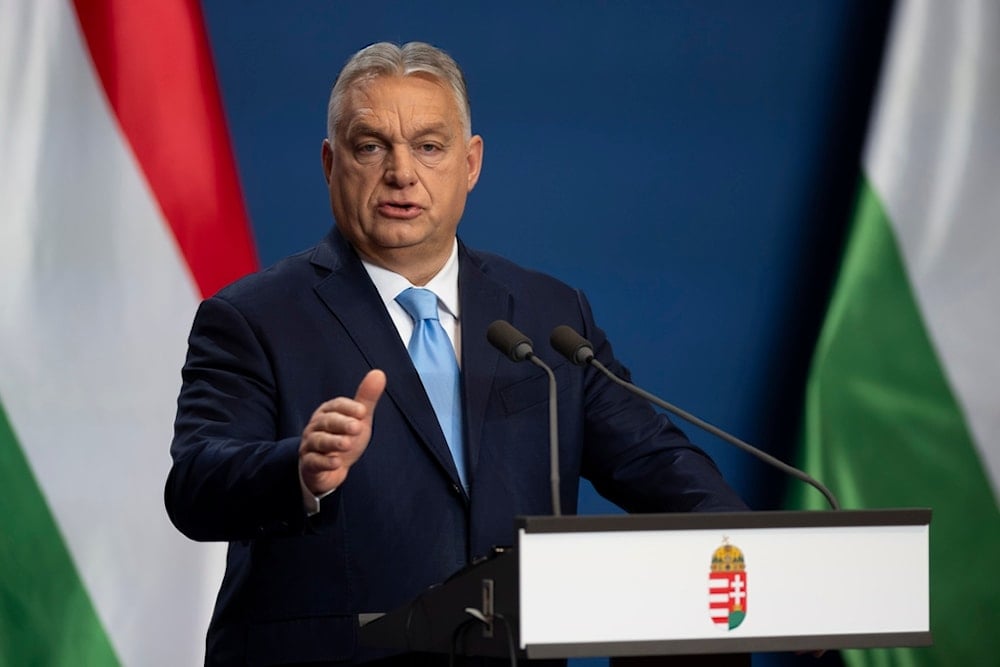Hungary urges resumption of Ukraine gas transit ahead of EU sanctions
Orban reiterates his criticism of the bloc's sanctions against Russia, claiming they have caused financial losses of €19 billion ($19.9 billion) to Hungary.
-

Hungarian Prime Minister Viktor Orban speaks during his annual international press conference in Budapest, Hungary, on Dec. 21, 2024. (AP)
Hungarian Prime Minister Viktor Orban called on the European Union on Friday to persuade Ukraine to resume gas transit from Russia to Europe, signaling a potentially contentious debate as the EU prepares to extend sanctions against Moscow in the coming week.
Hungary has yet to decide whether to support the renewal of sanctions, which is scheduled for the end of this month. The EU renews sanctions every six months, requiring unanimous approval from all 27 member states.
Orban, whose government has maintained closer ties with Moscow than most EU countries, reiterated his criticism of the sanctions, claiming they have caused financial losses of €19 billion ($19.9 billion) to Hungary.
"Now the issue of the rollover of the sanctions is on the agenda and I have pulled the brakes and asked EU leaders to understand this cannot continue," Orban told state radio.
"This is not good that we pay the price of helping Ukraine ... and they cause us problems," he underlined, referencing Ukraine’s recent decision to halt Russian gas flows to Europe via the Druzhba pipeline.
"We ask them to convince Ukraine to resume the gas transit," Orban added, noting that Budapest also seeks assurances that Ukraine will not block imports of Russian crude oil.
EU foreign ministers are set to meet on Monday to discuss the sanctions renewal. Hungary's Foreign Minister has anticipated intense negotiations, emphasizing that his country will also consult with its US partners in the coming days.
It is noteworthy that in December 2023, Orban delayed EU financial aid to Ukraine for several weeks.
While many Western European nations have reduced their reliance on Russian energy, landlocked Hungary still sources about 80% of its gas and the majority of its crude oil from Russia. Russian gas is supplied to Hungary through the TurkStream pipeline via Serbia, and the country did not import gas through Ukraine last year.
Since the start of the war in Ukraine in February 2022, the EU has implemented 15 rounds of sanctions against Moscow.
Last week, EU foreign policy chief Kaja Kallas cautioned against lifting these measures, emphasizing that doing so would forfeit the bloc's "leverage" over Russia.
Meanwhile, global leaders, including US President Donald Trump, are increasing pressure on Russian President Vladimir Putin to end the conflict.
In an interview for Fox News on Thursday, Trump stated that Moscow would face "massive" tariffs and taxes along with "big sanctions" if it failed to bring the war to a resolution soon.
Read more: Hungary says to block Ukraine EU bid, Kiev ready to replace it

 3 Min Read
3 Min Read









